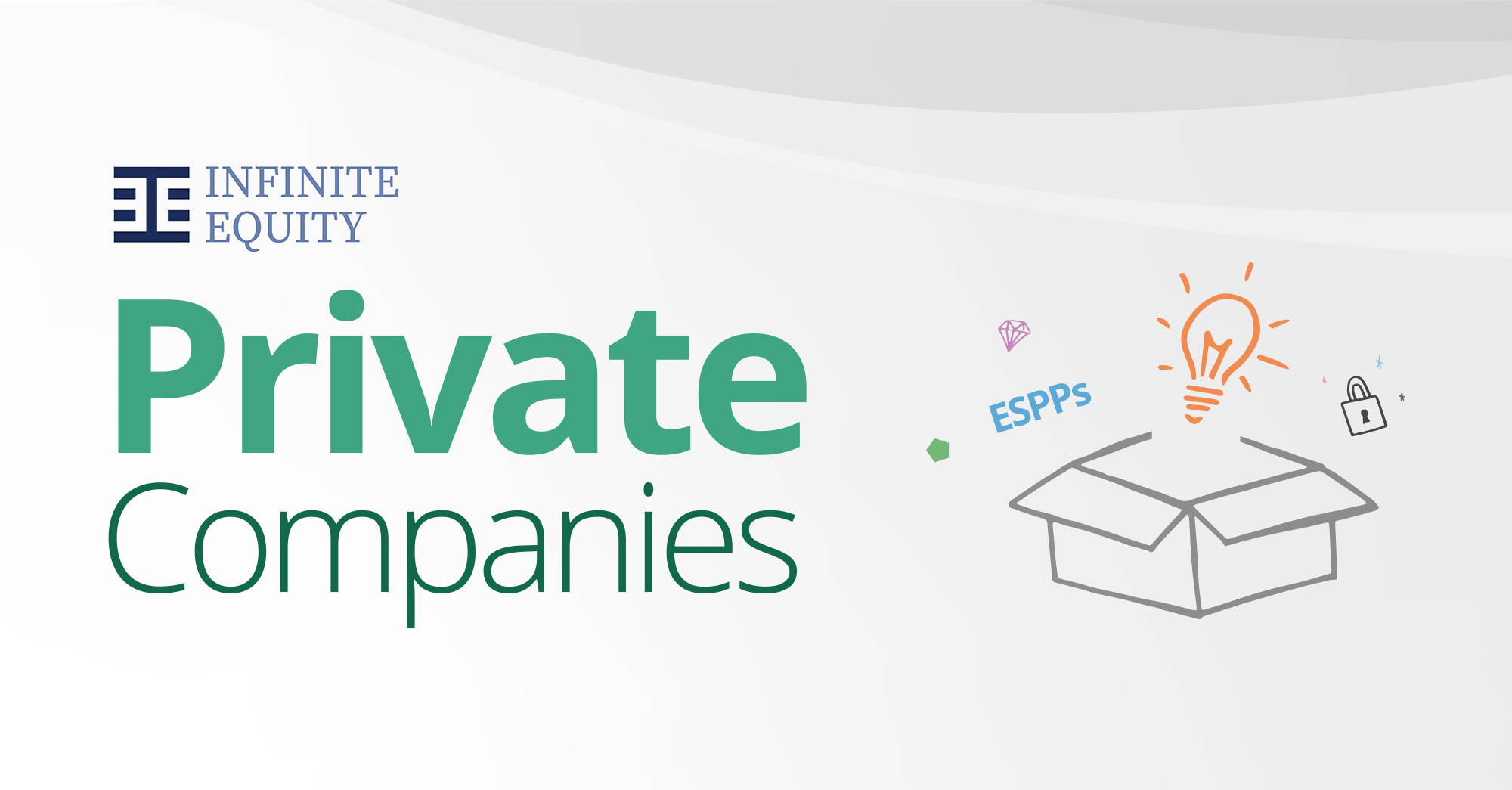If you’re a private company and thought that launching an ESPP for your employees wouldn’t make business sense – think again. That’s the message we’re hearing loud and clear from a host of un-listed companies who’ve decided to bite the bullet and launch an Employee Stock Purchase Plan (ESPP) as part of their compensation offering. ESPPs have traditionally been associated first and foremost with public companies. But the tide has turned in recent years and more than ever, larger private companies are embracing this type of equity compensation program.
So what’s changed? Why are private companies now considering this approach when for so long ESPPs were not seen as a good fit for their needs? We caught up with the experts at Infinite Equity who gave us the lowdown on the trends and changes they’ve been seeing over time in the area.
Managing Director Chuong Pham points to two key factors explaining the increasing popularity of ESPPs in the private sector – changes in relevant laws and greater prevalence of liquidity programs to enable plan participants to sell their stock being at the forefront.
He said: “In the past, ESPPs were mainly used as a vehicle for public companies, and are often rolled out upon an initial public offering to rally human capital. For private companies, securities law constraints and the illiquidity of the stock were often considered challenges that outweighed the benefits of an ESPP. ”
Changes in securities law since 2012, together with the growing infrastructure for private liquidity programs, have given additional latitude for private companies to offer ESPPs.
Chuong Pham, Managing Director at Infinite Equity
Liquidity Programs
A private company ESPP brings with it increased pressure from employees for ways to sell their holdings. Over the last decade, changes in federal law and availability of capital have resulted in more companies delaying their decision to go public, with this, in turn, leading to a thriving market for private company equity sales. The rapidly growing nature of the private market has led to the creation of an ever-increasing array of alternatives for holders of private company securities to sell those securities.
A partner at Infinite Equity and adviser to companies on their equity programs, Liz Stoudt stressed that liquidity programs are fast becoming a common choice to address demand from employees for ways to sell their company stock. She added that these programs can take different forms: “They can take the form of a share buyback by the company or a tender offer by investors or jointly by investors and the company.”
These liquidity programs meet the needs of employees, but they also work for employers.
Liz Stoudt, Partner at Infinite Equity
.
“Liquidity programs provide the company with much control over the determination of the purchase price, the eligible employees, the limitations on shares they may sell individually or in the aggregate, and the frequency of the program, whether, for example, ad hoc or annual,” she said.
Also, a technology solution is often used with such a program to streamline the eligible employee workflow (facilitating the election to sell and execution of documents) while enforcing eligibility and whatever sellable shares limit has been pre-set by the company.
Changes in Securities Law
On the point of securities law, Chuong Pham highlights the 2012 Jumpstart Our Business Startups (JOBS) Act as a noteworthy piece of legislation, as it increased the threshold for mandatory registration from 500 to 2,000 shareholders. He also noted the importance of provisions contained within this Act governing exclusions.
“An exclusion is provided for holders of securities issued under employee compensation plans that are exempt from registration under the Securities Act of 1933 (Securities Act). This exclusion applies to both current and former employees if securities were offered as part of their participation in the plan as employees,” he said, but also emphasized that the exclusion will no longer apply “once securities are transferred to another holder”. Transfer restrictions, therefore, should be used to allow the company to control the employees’ sale of their ESPP stock to third parties.
The Securities and Exchange Commission (SEC) released its final rules implementing the JOBS Act in 2016, with the net effect of these changes, according to Chuong, being to reduce the level of risk associated with mandatory registration, an important consideration for private companies considering offering broad-based ESPPs.
He also points to 2018’s Economic Growth, Regulatory Relief, and Consumer Protection Act and the greater flexibility it has brought on stock-based compensation as a key marker on the road to private companies coming to embrace ESPPs.
Highlighting the situation prior to the introduction of that legislation, he said: “Previously, SEC Rule 701 required that if the sales value of non-registered securities issued pursuant to compensatory benefits plans exceeded $5 million in any consecutive 12-month period, the issuer had to provide additional disclosure to the offerees on the material terms of the plan, risk factors associated with an investment in the securities, and U.S. GAAP financial statements.”
Those requirements brought with them the prospect of unwanted headaches for private companies and led many to view ESPPs as more trouble than they were worth, but the 2018 legislation increased the threshold for disclosure from $5 million to $10 million. The net effect of this measure, Chuong says, was to “reduce the risk for private companies of having to prepare public company-style disclosure and having the disclosure be widely disseminated to participants in a broad-based ESPP.”
However, he also notes that some disclosure under the Securities Act, even if not required, could be helpful in the event of needing to respond to antifraud claims by employees participating in the ESPP.
While changes in securities law and liquidity programs will be top of the list in any conversation around ESPPs and private companies, Infinite Equity also emphasized that there are also other points that any business considering this kind of plan will need to be aware of, such as:
- Compliance with state and federal securities law (in addition to the legislation mentioned here)
- Implementing stock transfer restrictions and company repurchase rights upon termination
- Valuation of the stock
Infinite Equity is a trusted partner of Global Shares and we work together to create solutions for private (and public!) companies around equity compensation. If you’re planning to design, launch or roll out an Employee Stock Purchase Plan for your employees, talk to us first, request a demo today.
If you’d like to learn more about how you can benefit from an employee stock plan, check out our ESPP library.
This publication contains general information only and J.P. Morgan Workplace Solutions is not, through this article, issuing any advice, be it legal, financial, tax-related, business-related, professional or other. J.P. Morgan Workplace Solutions’ Insights is not a substitute for professional advice and should not be used as such. J.P. Morgan Workplace Solutions does not assume any liability for reliance on the information provided herein.



